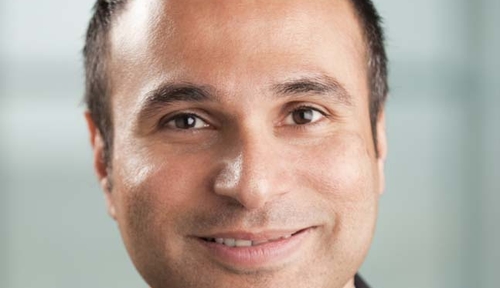The University of Nebraska Medical Center and the Omaha VA Medical Center and 36 other sites will take part in a nationwide study to compare the long-term benefits and risks of four widely used diabetes drugs in combination with metformin. The project is called the Glycemia Reduction Approaches in Diabetes: A Comparative Effectiveness (GRADE) Study.
The five-year, $2.1 million study funded by the National Institutes of Health aims to enroll about 5,000 patients nationwide diagnosed with type 2 diabetes within the last five years currently only taking metformin. During the study, participants will take metformin, along with a second medication randomly assigned from among four classes of medications, all approved for use with metformin by the U.S. Food and Drug Administration.
While short-term studies have shown the effectiveness of different drugs when used with metformin, there have been no long-term studies of which combination works best and has fewer side effects. When metformin is not enough to help manage type 2 diabetes, physicians may add one of several other drugs to lower glucose (blood sugar).
“We know the effectiveness of drugs in lowering the blood glucose levels in the short term, but we don’t know which combinations of medications work the best and how long the combinations work for,” said Cyrus Desouza, M.D., professor and chief of the UNMC Division of Diabetes, Endocrinology & Metabolism. Dr. Desouza also has an appointment at the Omaha VA Medical Center.
“We’ll also evaluate what works better for diverse populations such as in African Americans and Hispanics and how long the drug combinations remain effective in patients,” Dr. Desouza said. “I think the impact is going to be really important because we will be able to individualize therapy for our patients.”
The study will compare the effects of drug combinations on glucose levels, adverse effects, diabetes complications and quality of life over an average of nearly five years.
Three of the classes of medications increase insulin levels. They are: sulfonylurea, which increases insulin levels directly; DPP-4 inhibitor, which indirectly increases insulin levels by increasing the effect of a naturally occurring intestinal hormone; and GLP-1 agonist, which increases the amount of insulin released in response to nutrients. The fourth type of medication is a long-acting insulin.
Study participants will receive diabetes medications for glycemic control including blood glucose, glucose strips and glucose monitor supplies. Participants will make four clinic visits each year, including for laboratory tests for monitoring lipids, A1c and blood pressure. Patients will continue to receive health care through their primary care providers. The providers will receive quarterly reports from UNMC.
Dr. Desouza said he hopes the information will provide new drug treatment guidelines, as the current guidelines are very general. “This also will help primary care providers so that they can apply it in their practices,” he said.
The Centers for Disease Control and Prevention estimates that 7.1 percent of Nebraskans have been diagnosed with diabetes, primarily due to obesity. Implications of not receiving the most optimal drug can result in complications such as kidney failure, lower-limb amputations, and blindness.
Dr. Desouza is principal investigator of the study. UNMC co-investigators are Vijay Shivaswamy, M.D., Gay Canaris, M.D., and Birgit Khandalavala, M.D.
Learn more about the study at https://grade.bsc.gwu.edu.
For more information contact Grace Rodriguez at mrodrigu@unmc.edu or 402 559-6244.
GRADE (ClinicalTrials.gov number: NCT01794143) is supported under NIH grant U01DK098246. Additional support in the form of donation of supplies comes from the National Diabetes Education Program, Sanofi-Aventis, Bristol-Myers Squibb, Novo Nordisk, Merck, BD Medical and Roche Diagnostics.
Through world-class research and patient care, UNMC generates breakthroughs that make life better for people throughout Nebraska and beyond. Its education programs train more health professionals than any other institution in the state. Learn more at unmc.edu.
-30-
